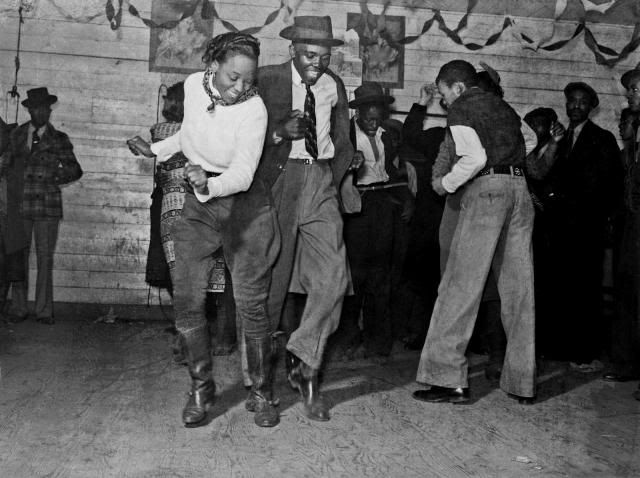
Hey Moose! Just dropping by to say ‘hello’. I’ve been lurking about as much as I can, but far too busy for blogging lately with the whole school, work, and kids thing going on. Still, I miss the Purple Palace something fierce* so I wanted to drop this little thing I’ve been working on. If you like music, history, cultural geography, or even if you just want to spend a few minutes not thinking about Syria, well this is the post for you.
*see what I did there?
Obviously, I wrote this for a different format, so I didn’t bother with html links for the individual citations and whatnot. If anyone wants the full list of references, or more information about any of them, just make a request in the comments. I’m happy to kick down the goods.
–fogiv
The uniquely American musical form known as ‘the Blues’ represents perhaps the most powerful reflection of the trials and travails that were critical in shaping the African American experience in America. Originating from the cultural influences of both Africa and Europe, this surprisingly simple musical form mixes the sorrow and pain of slavery, as well as the joys of emancipation and freedom, and recollects the long struggle for equality in the face of discrimination and prejudice.
Tracing the geography of the Blues from its seminal roots in the Yazoo-Mississippi Delta, and along its subsequent spread north and west across the of United States with the Great Migration, this musical tradition has unquestionably spawned or influenced almost all genres of modern American music, which have in turn influenced people and cultures all around the globe.
Thought by musicologists, historians, and relevant scholars of virtually every stripe to be America’s only uniquely original musical form, the Blues chart the movement of a people, the development of their culture, and record the genuine experience of African Americans while continuing to serve as the foundation for nearly all genres of American music–from rock and roll to hip-hop, and from to jazz to country, western swing, and bluegrass.